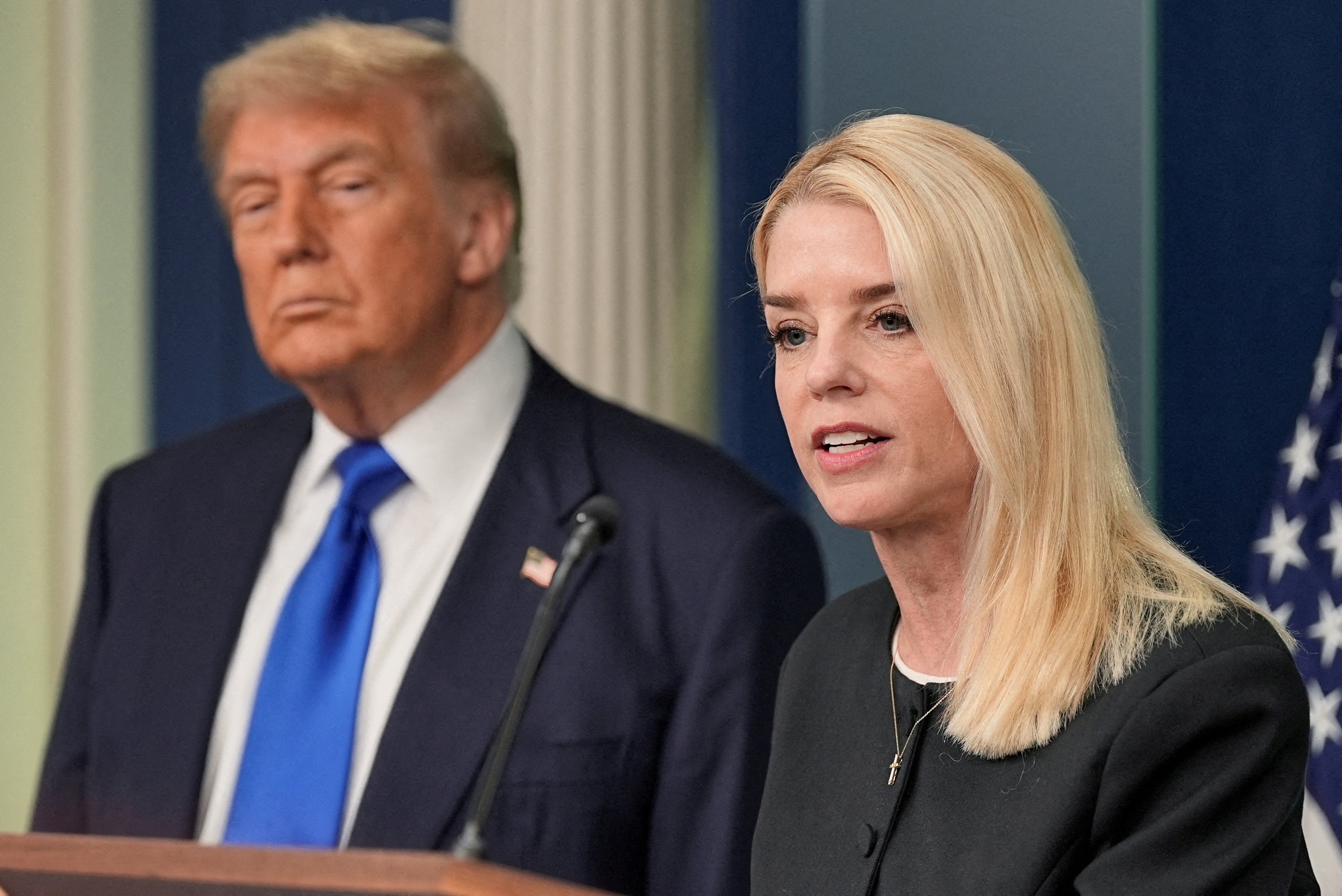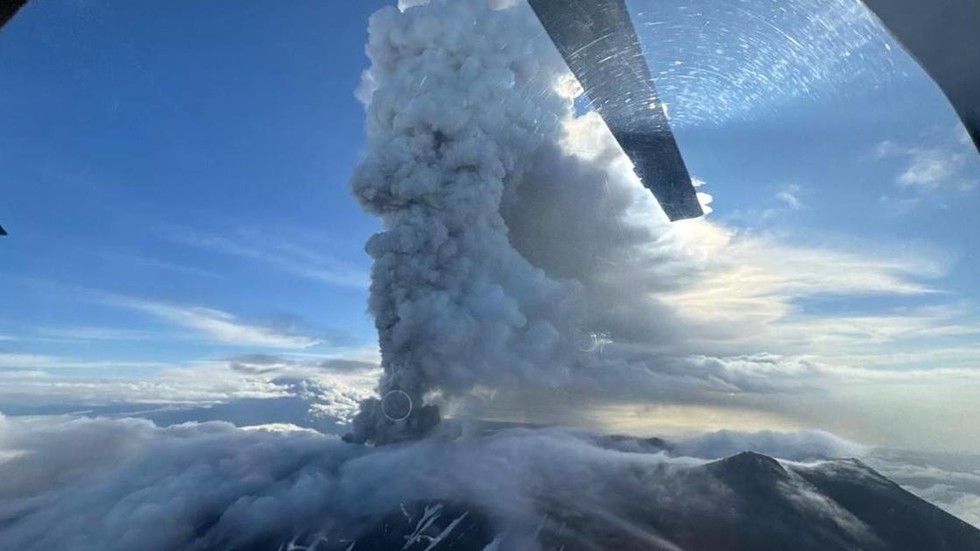Donald Trump’s administration has repeatedly hailed itself as the “most transparent” in American history.
But the president’s name was reportedly redacted from documents surrounding the investigation into sex offender Jeffrey Epstein as the administration prepared for their potential public release.
Investigators blacked out Trump’s name, and the names of other high-profile figures, claiming that the information constituted an “unwarranted invasion of privacy,” according to Bloomberg. Attorney General Pam Bondi told the president that his name was in the files in May, The Wall Street Journal previously reported.
Ultimately, in July, the Department of Justice and the FBI declined to release any additional documents.
Public scrutiny of Trump’s connections to Epstein and the financier’s crimes and circumstances of his death have only intensified in the wake of that memo.

In February, the White House handed over binders of largely publicly-available Epstein-related documents to several far-right influencers in an apparent effort to prove that the administration was listening to demands for more information on Epstein and his death.
At the time, Bondi labeled the release of those documents a “first phase” and told Fox News that more materials — including a so-called “client list” of high-profile figures allegedly implicated in Epstein’s sexual abuse of girls and women — were “sitting on my desk right now to review.”
In July, the Trump administration reversed course, finding “no basis to revisit the disclosure of those materials” despite demands from MAGA supporters and allies for a full accounting of Epstein’s death and alleged ties to a wider child trafficking conspiracy implicating powerful figures.
The DOJ determined that “no further disclosure would be appropriate or warranted.”
Before releasing the binders, Bondi wrote to FBI director Kash Patel demanding to know why the agency failed to provide her with documents she requested. She then “pressured” the FBI to deploy hundreds of employees to support staff that work on Freedom of Information Act requests to dig for records, according to a letter from Senator Dick Durbin on July 18.
In March, nearly 1,000 agents were pulled from field offices for 24-hours shifts to comb through thousands of documents, including grand jury testimony, case files, and investigative notes from the FBI, according to the senator’s office.
They were instructed to “flag” any records in which Trump was mentioned, according to Durbin.
FBI personnel identified “numerous references to Trump” in the documents, according to Bloomberg, citing people familiar with the matter. The names of dozens of other public figures also appeared, the outlet reported.
In preparation for their potential public release, the documents were reviewed by a team of FOIA officers who applied redactions, blacking out Trump’s name and the names of other high-profile people, Bloomberg reported.
FOIA officers redacted the president’s name arguing that he was a private citizen when federal law enforcement launched an investigation into Epstein nearly 20 years ago.
Investigators reportedly relied on a FOIA exemption that limits the release of information considered “a clearly unwarranted invasion of personal privacy”, and another that protects the release of personal information in law enforcement records, that “could reasonably be expected to constitute an unwarranted invasion of personal privacy.”
A person’s appearance in the documents does not necessarily indicate wrongdoing.
Bondi reportedly made Trump aware that his name appeared in the files in May. The FBI and Justice Department issued the joint statement declaring there was “no basis” to release any other files connected to the case on July 6.

On the campaign trail, Trump had promised to release FBI files related to Epstein, who died by suicide in his jail cell on August 10, 2019 while awaiting trial on sex trafficking charges.
But the president, whose friendship with Epstein spanned more than a decade, has insisted that the public and press should move on from questions about the case. Epstein’s death during Trump’s first administration has fueled ongoing conspiracy theories of a government-wide cover up to protect powerful public figures who exploited and abused young girls.
Last year, Bondi told Fox News that people named within the so-called Epstein files “have no legal basis” to conceal their names, “unless they’re a child, a victim, or a cooperating defendant.”
In January, Patel promised during his Senate confirmation hearing that “the American public knows the full weight of what happened.”
Trump, who has denied any connections to Epstein’s abuses, filed a $10 billion defamation lawsuit against The Wall Street Journal , its publishers and right-wing media mogul Rupert Murdoch over an article that reported he sent a “bawdy” birthday card message to Epstein for his 50th birthday in 2003.
Meanwhile, Trump’s former criminal defense attorney Todd Blanche — who is now Bondi’s top deputy at the Justice Department — recently performed a two-day jailhouse interview with Epstein’s accomplice Ghislaine Maxwell.
Maxwell was found guilty of sex trafficking and other offenses in connection with Epstein in 2021. She is serving a 20-year sentence for what prosecutors labeled a 20-year scheme to recruit, groom and abuse young girls.
On August 11, Maxwell is scheduled to sit for a deposition sought by the Republican-led House Oversight Committee. In a letter to the committee, her attorneys have asked for some immunity protections — and made another appeal to Trump for clemency.
The Independent has requested comment from the FBI and the White House.

 1 day ago
4
1 day ago
4









